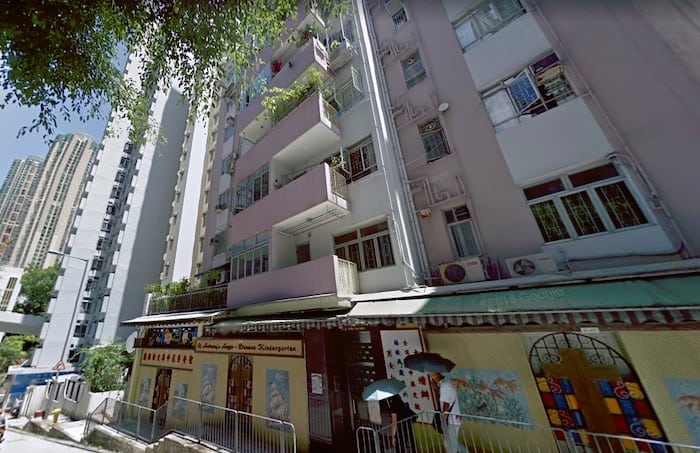
Kerry Properties has snapped up 83 Hill Road
Kerry Properties, the Hong Kong-listed developer controlled by Shangri-La Hotels founder Robert Kuok, has acquired a block of flats in the city’s western district for a combined HK$514 million ($66 million).
Kerry, which is known for its Kerry Centre commercial projects in mainland China, completed the acquisition by scooping up 28 individual units ranging in price from HK$14 million to HK$32 million, according to a local press account.
Land Registry documents reveal that the units in the 49-year-old building were acquired by Norminster Limited, a holding company that lists as its directors Kerry Properties’ chief financial officer Louis Chi Kong Wong as well as Ip Pui Chu, who manages the developer’s property portfolio in the city.
The government documents show that the developer paid HK$20.5 million for one of the flats, picking up the home from an owner that had held the unit since acquiring it in 1985 for HK$400,000.
Expanding Portfolio in Sai Ying Pun
“The newly acquired property in Sai Ying Pun is currently under planning for redevelopment,” a spokesperson from Kerry Properties told Mingtiandi while adding that the company was not able to disclose any further details at this stage.
Located at 83 Hill Road in a residential neighbourhood near the University of Hong Kong, the property falls within an area in western Hong Kong that Kerry is targeting for development.

Kerry Properties’ Ip Pui Chu said the area has strong potential
“Kerry Properties has full confidence in the potential of Hong Kong Island West,” Kerry Properties’ spokesperson said.
Chu told a local media outlet that the development of the nearby Sai Ying Pun area gives the property solid leasing potential.
Just 400 metres away in the hip Sai Ying Pun district is the developer’s 168-unit The Summa, an upscale twin tower residential development that was launched five years ago with flats selling at HK$27,202 per square foot. Shangri-La Group operates the Hotel Jen just six minutes walk from 83 Hill Road.
The company is also currently making available for lease its 156-unit luxury rental residence Resiglow Bonham, which is located next to The Summa at 8 Hing Hon Road in Sai Ying Pun, and Kerry Properties confirmed that 50 percent of the apartments, which rent for around HK$25,500 per month, have been leased since the property was launched onto the market in August.
Targeting Redevelopment Potential
The newly acquired property is a ten minute walk from the University of Hong Kong Centennial Campus and 200 metres from the Hong Kong University MTR station.
Co-living specialist Hmlet, which had previously identified the area’s rental potential, currently manages a unit in the property which makes available individual rooms priced at HK$11,500 per month.
A 361 square foot apartment on the same road is listed on the Habitat Property website at HK$25,000 per month, while one 770 square foot luxury apartment at Kerry Properties’ The Summa is advertised at HK$49,000 per month.
Strengthening a Hong Kong Leasing Portfolio
Although Kerry Properties derives the bulk of its revenue from property sales, the Hong Kong property division of the group attributes roughly a fifth of its top line from leasing.
Of the HK$3.3 billion Kerry’s Hong Kong unit turned over during the first six months of this year, HK$594 million was derived from leasing.
The company’s overall portfolio of rental properties in the city amounts to 4.1 million square feet, 803,000 square feet of which are apartments, with 98 percent of that space leased according to the company’s interim report.
Kerry’s Hong Kong unit also holds 1.2 million square feet of retail space at 100 percent occupancy, 840,000 square feet of offices at 98 percent occupancy, and 1.3 million square feet of warehouses at 82 percent occupancy.
In a residential report released by Savills four days ago, the property consultancy said that luxury apartment rents slipped in the third quarter of this year amid ongoing protests, although tenants had not yet started to turn away from the market.
“Luxury leasing demand has held up surprisingly well, but rents have begun to buckle nonetheless,” said Savills’ senior research director Simon Smith.
Leave a Reply